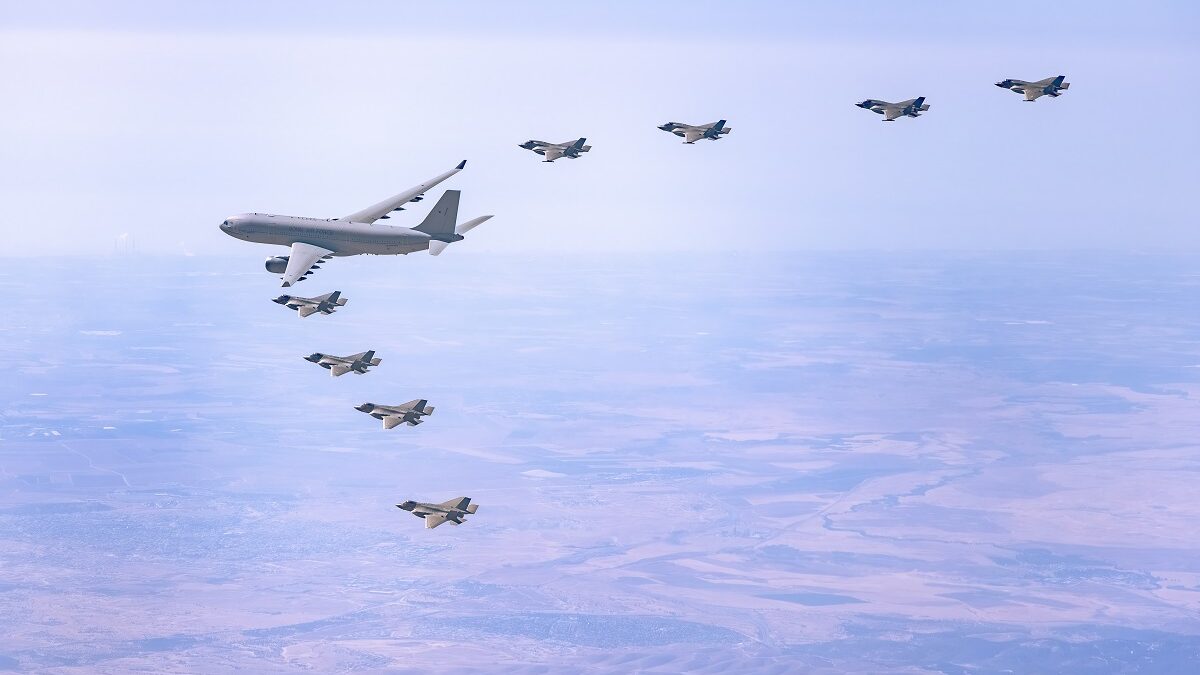Israel’s Security at a Crossroads
An-Nahar, Lebanon April 18
A recent report from the Jerusalem Institute for Strategic and Security Studies in Israel declared: “If you want peace, prepare for war.” This is an apt description of the current situation facing the Jewish state. Israel is now confronted with a schism between the conservative religious Right and the more liberal Left, which has taken a dangerous turn following the current government’s proposal to reduce the powers of the judiciary and transform the country from a liberal democracy into an illiberal one. This would grant the ruling party or coalition unprecedented legislative freedom, without the oversight of the judicial authority. This could potentially lead to an autocratic regime, incompatible with Western democratic values. A recent report calls on Israel to be prepared to enter a war without the help of the United States. Open US military assistance to Israel has been present since President Lyndon Johnson’s term, with even greater support from Britain and France in the early years of Israel’s existence. Modern American weapons began arriving in Israel in the mid-’60s, and the relationship between the two countries has grown to what it is today. Since the collapse of the Soviet Union, the Middle East has become a region dominated by Israel, with American support and the prevention of other nations from obtaining nuclear weapons—excluding, of course, Israel’s own nuclear arsenal. As a result, Israel continues to lead the region in terms of weaponry, thanks also to America and the West. Israel is facing a momentous internal struggle over its identity and shape in a rapidly changing world. Recent reports have suggested that conservative Israeli strategists have noticed a decline in the effectiveness of Israel’s deterrence. Though this perception may be exaggerated, it is being discussed and has prompted conversations concerning Israel’s need to become less reliant on the United States, which is preoccupied with its own issues regarding the growing Chinese threat in Asia. The report pays special attention to the Iranian threat, whether through its nuclear program, or its militias armed with missiles and other weapons, located on Israel’s borders. The Israeli military doctrine is characterized by its offensive nature and is based on several key principles. These include launching preemptive strikes to maintain Israeli military superiority, pushing any battle away from the Israeli homefront, utilizing intelligence superiority to anticipate enemy steps, limiting military confrontations to a short time frame, and preventing any Middle Eastern country from acquiring nuclear weapons for military use. The Israeli deterrence strategy is rooted in the notion of preventing hostile powers from threatening its existence. Israel’s nuclear weapon, then and now, is meant to prevent enemies from launching a devastating attack against the Jewish state. As a small country, Israel has established a red line that must not be crossed: the acquisition of nuclear weapons. This was demonstrated by the destruction of the Iraqi nuclear reactor in 1981 and the Syrian facility in Deir ez-Zor in 2007. Today, the Jewish state is confronted with the Iranian nuclear program, which has advanced further than any other program in the region, and according to estimates from American and Israeli military officials, is nearing military-grade nuclear weapons. If Israel is determined to act unilaterally without American support, two major obstacles arise. First, Israel currently lacks an adequate number of modern aerial refueling planes. Though Washington had previously agreed to sell Israel KC-46 aircraft, it has yet to follow through, citing the priority of meeting the needs of its own forces. However, the U.S. has participated in joint air exercises with Israel, in which American planes provide in-air fueling, to simulate an attack on Iran. Israel has a robust squadron of attack aircraft, such as the F-35, F-15, and F-16, but would require multiple refueling stops to reach Iranian airspace, conduct deep strikes, and return home. The second challenge Israel faces is how to counter the growing threat of Iranian-affiliated militias on its northern and southern borders. Currently, the Iron Dome air defense system is tasked with the defense of Israeli cities, settlements, and military airports against missiles, while an integrated air defense system defends against drones and ballistic and cruise missiles. But the question remains: How can Israel stand up to a comprehensive and coordinated attack emanating simultaneously from southern Lebanon, the Golan Heights, and the Gaza Strip? Does Israel have enough Iron Dome missiles to adequately protect itself against such an ambush? What if Iran can deliver air defense systems that interfere with Israeli air control? To address this, Israel is developing the Iron Beam system, which uses lasers to shoot down missiles and drones. This system has a much lower operational cost than Iron Dome and does not require ammunition, as it runs on electrical energy to generate damage. Will the mounting fear in Israel spur it to launch a unilateral military mission? How will it confront the threats on its borders, and what will be the cost? Or, with its weak internal unity and lack of US military support, will Israel be forced to adapt its military doctrine to be purely defensive and to coexist with the new reality that may include a nuclear Iran? How will Israel address the Chinese effort to bring Iran and the Arab states together to create a new security structure in the region? One should not underestimate the choices facing Israel today, as it experiences the growing disapproval of Western society for its discriminatory policies against the Palestinian people in the occupied territories. Prime Minister Binyamin Netanyahu’s government is at a crossroads, with multiple axes that will determine the future of the Jewish state, and, with it, the form of the regional system in the coming years. —Riad Kahwaji (translated by Asaf Zilberfarb)

